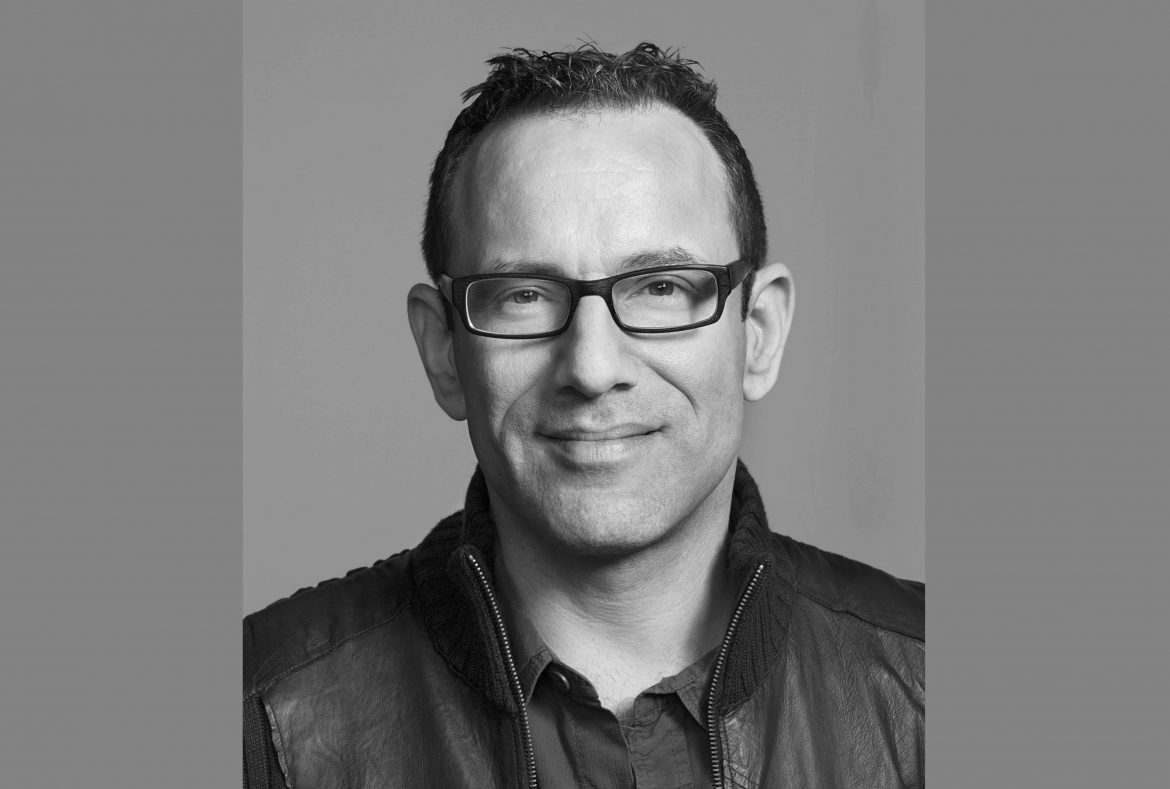Marc Smolowitz is a know it all, in a good way. He has worked in almost every aspect of the film industry in his 30-year plus career. Currently, he produces, directs, and consults, for independent films, with his company 13th Gen, based in San Francisco. At any given time, Smolowitz has his hand on the levers of production, post-production, marketing, sales, and distribution with independent film partners from around the globe, with a vibrant portfolio of films.
Early in his career, he served as a producer on Sam Green’s, The Weather Underground (Academy Award Nomination, 2003), and San DuBowski’s, Trembling Before G-D (2001), a film that has been listed one of the top 100 documentaries all time. The more than 50 films he has worked on during his career have won numerous awards, and have been screened at the most prestigious international film festivals, including Sundance, Cannes, Berlin, Tokyo, Melbourne, Vienna, Krakow, and Jerusalem.
What was the first film you worked on and what was the experience like?
In my senior year, I received a huge gift. Vito Russo was one of my professors, a visiting professor from New York and he taught The Celluloid Closet and the history of activism. He was my mentor and he and I would talk after class, he would smoke cigarettes and we would laugh. I was just completely in love with him and he introduced me to books, films, and ideas that put a fire under my activist self. He was also living with AIDS and he helped bring an activist spirit into my life. Meeting him and learning about the history of gay activism through his personal experience was hugely defining.
When I moved to San Francisco in 1990, I quickly began my film career and it involved getting to know filmmakers and trying to get my footing in the industry here. One of the first companies that I connected with was Telling Pictures, run by Rob Epstein and Jeffrey Friedman, and I was fortunate to work on the movie version of The Celluloid Closet. It was not the first movie I worked on, but it was my first big project. It was a verification of having gone to college and having a strong mentor who taught me so much. To be given the charge to make the movie about his book, then getting to make that movie and eventually premiering at the Toronto International Film Festival, was just an amazing experience.
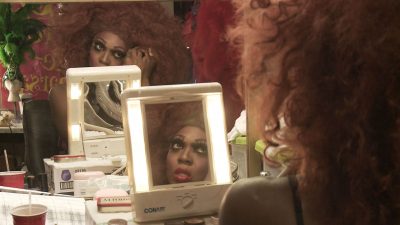
Being Bebe (Photo Courtesy of Marc Smolowitz)
Looking at the extensive list of films you have worked on, the majority have LGBTQ themes. What attracts you to these stories? Do you feel a responsibility as a gay man to tell these stories or is it a personal choice?
I do feel a certain responsibility to tell these stories, but it also is a personal choice. It’s so much about personal choice, that is if you really look at the portfolio, 30 to 40 percent of the films are not LGBTQ. I’ve always leaned into LGBTQ, because that’s where I feel like I can really make a difference. As a cis gender male, who is a gay producer, I have certain access to privilege and certain access to corridors to move through a lot more easily than others. I’ve been looking at how I can support women filmmakers, filmmakers of color, transgender filmmakers, and on and on. Since very early in my career that has always been a responsibility that I feel as a man, taking care of my queer brothers and sisters.
In the last number of years, I have developed a very large, consulting business and I always say you’re paying me to have the privilege of me to work on a movie because I think you’re making a good movie. I’m not here to work on shitty movies. I want to work on things that that do something in the world, and have it be the best possible movie it can be.
Who are your LGBTQ heroes past and present?
Oh my God. So frickin many. I spoke about one of them, Vito Russo. Another is Marlon Riggs who I was very fortunate to meet when I landed in San Francisco. My first job was working for the San Francisco Jewish Film Festival and one of our neighbors was Marlon Riggs. It was at the time of Tongues Untied, when he was so visible and inspiring. I had to pick up sandwiches for him at lunch and he was a major hero for me.
Another is Jose Sarria , who was the first openly gay man to ever run for public office of any kind in United States in 1961, sixteen years before Harvey Milk. He was a Latino drag queen and not a lot of people know his story. I was delighted to be the producer of a film that told his story.
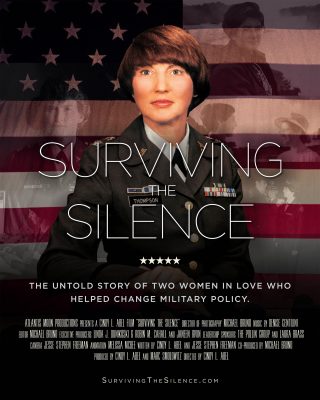

You travel internationally to film festivals. Which places have been the most receptive to your films and what is the reason for that? Which are your favorite film festivals?
By far Berlinale, in Berlin, has been really receptive over the arc of my career. There is no other mainstream festival that has embraced LGBTQ cinema and has also played a part in advancing queer voices.
I’ve been to Cannes and there’s no place like it because you feel like the entire global film industry is there. It’s very, very, special and what I always say about Cannes is that everything is possible there for cinema. Yes, you have the red carpet and that sense of celebrity and gravitas that is unprecedented, but there are hundreds of different worlds unfolding in real time side by side among the tens of thousands of film and interview professionals who are there for 10 days.
Also, it’s in a beautiful place, and the weather is typically great. People are there to do business and at night, you’ll be at a restaurant in the Cannes Old Town, and over here is the Indian table and here’s the Moroccan table and over here is the Italian table and over here is the Chinese table and they’re all there coming to this worldwide marketplace. It’s amazing and it always made me feel at home in an industry where I don’t get that feeling in a lot of places.
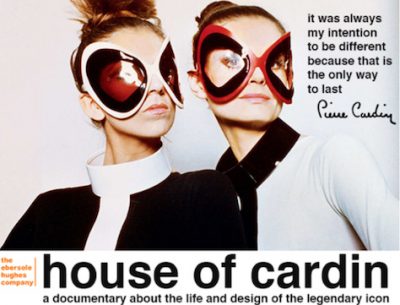

What are the current projects you are working on?
There are six films in my company right now. I am a producer on Lumberville, the second film by Vincent Gagliostro, who directed and co-wrote After Louie in 2017. Another is the House of Cardin, which fortunately premiered on the fall festival circuit, and was in Berlin, Palm Springs and National Book Festival in January.
What are the most satisfying films you worked on and why?
It’s really hard for me to pinpoint, because every movie is like having a child. One of the most satisfying experiences was my movie Heaven Adores You, a biopic documentary about singer, songwriter Elliott Smith who died tragically in 2003. It continues to have an incredibly large fanbase around the world to this day. Young people have embraced him and love his music. Smith wrote and performed the main song for the film, Good Will Hunting with Matt Damon and Ben Affleck, and it was nominated for the Oscar for best song. We made the movie and sold it with all worldwide rights to a distributor in one sale with a successful amount of money changing hands. It was extremely satisfying.
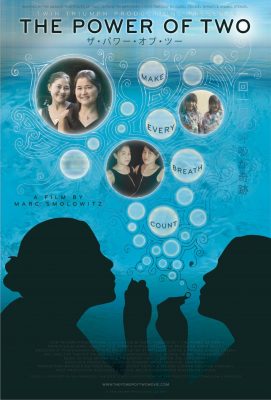

One of the most creative highlights of my life and career was making the film The Power of Two, which was my first feature length documentary as a director. It’s a story of twin sisters who grew up with Cystic fibrosis and both had gone on to have double lung transplants and how they met worldwide advocates for better access to organ donation. I read their book and fell in love with them and their story. It was an incredibly beautiful moment in my life and career to make that movie, shooting it in three countries, and 27 cities with an amazing team. It premiered at the Tokyo International Film Festival. The twins were on the red carpet, and on the Katie Couric show.
You are a producer on the television series Pride, screening on FX network this May. Can you tell us about the series and how did you become involved?
I was brought on the series by Cheryl Dunye, who I was working with because she needed a producer for the episode that she was pitching. I produced her episode and then got onboard with the series. They liked my work as a producer, so they asked me to produce another episode. That episode was on the 1990s and is directed by Yance Ford, who is known for his movie Strong Island that was nominated for an Oscar a couple years back. I produced two of the six episodes and it’s a wonderful series.
A team worked on the 1950’s through 1990’s. I worked on the 70s and the 90s. We were given pretty free rein to choose the journey through the decade that we wanted to share. Cheryl decided she wanted to focus on women from the decade both on the left and the right. We focused on Barbara Hammer and Audre Lorde on the one hand, and then Phyllis Schlafly and Anita Bryant on the other. The 70s was an unprecedented explosion of visibility from the moment of Stonewall in 1969 to the March on Washington in 1979.
I think Pride is going to be beautiful. There’s also a new show on Apple TV Plus, called Out: Visible on Television, which is about the history of LGBT representation on television. I think these shows are so important, because young people don’t know their queer history. If we don’t know where we came from, how are we going to know where we are going? When you have to explain to people what Stonewall was, which was not all that long ago, and how it was a hugely defining for our communities, we a lot of work to do. I was delighted to have a chance to jump on a series that was going to advance the cause of getting into the mainstream.


